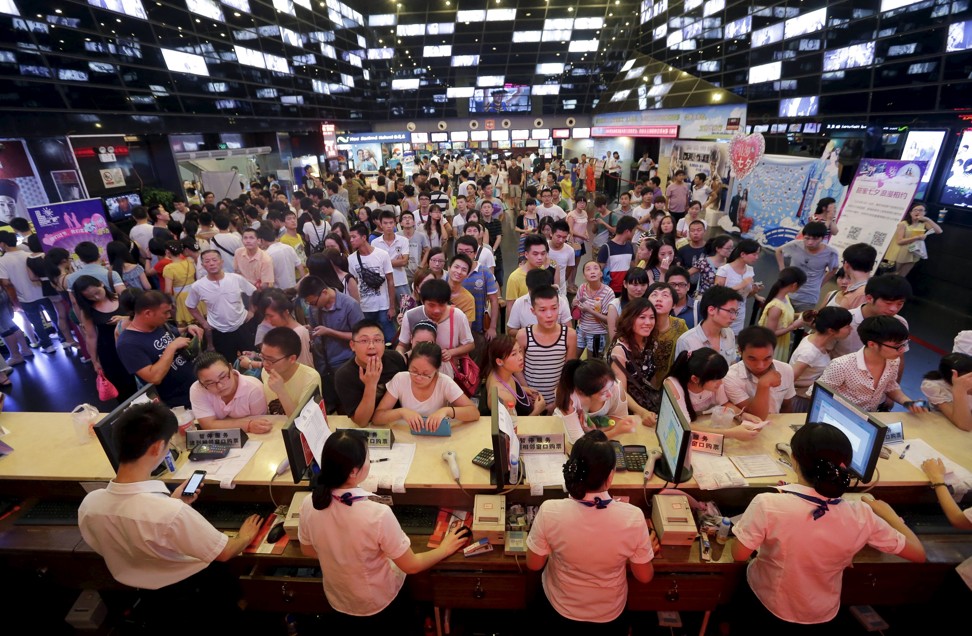
Patriotic action movie Wolf Warrior 2 tops China’s box office for 2017 but foreign films gain ground
Chinese productions take out most of the highest-grossing spots but still lag in average takings

Smash hit movie Wolf Warrior 2 led the charge at the Chinese box office in 2017 but foreign films gained ground on their domestic rivals as cinema ticket revenue returned to high growth.
Box office revenue rose by 13.45 per cent to 55.91 billion yuan (US$8.58 billion) during the year, with Chinese productions taking out four of the top five spots, Xinhua reported on Sunday, citing the State Administration of Press, Publication, Radio, Film, and Television (Sarft).
That compared to just 3.7 per cent growth, or 45.7 billion yuan, in ticket sales a year earlier, which prompted regulators to announce that sales figures in 2017 would include service fees for tickets bought online. That boosted the growth figure, though moviemakers saw little of the extra revenue.
Domestic productions accounted for 54 per cent of the sales, still the lion’s share but down from the 58 per cent in 2016.
Wolf Warrior 2, a patriotic action movie about a Chinese war hero, raked in 5.68 billion yuan, more than double the 2.7 billion yuan earned by the top-ranking foreign film and the second highest-grossing production overall, The Fate of the Furious.
To protect the domestic industry, China has a quota on the number of overseas movies that can be screened in the country each year.
Under the Film Industry Promotion Law which came into effect in March, it also requires foreign producers to have local partners if they want to make films in China.
China is the world’s second-largest movie market after the United States, though it has more movie screens after years of rapid expansion.
It added 9,597 screens last year, taking the total to 50,776, Sarft said. That compares to just over 40,000 screens in the US, according to data from US-based National Association of Theatre Owners.
China has strict censorship rules for movies, screening out content deemed politically or morally sensitive. It also bans Chinese filmmakers from cooperating with overseas groups and individuals that have hurt China’s “dignity, honour and interests”.
At the same time, the government has encouraged Chinese filmmakers to expand the nation’s soft power by aiming to make movies with the same level of commercial success as Hollywood blockbusters.
Zhang Hongsen, the head of Sarft’s film bureau, said in October that China should grow into a “great nation” in filmmaking by producing such movies that promote socialist values and tell good stories about China.
But the gulf between the average returns for a Chinese film compared to an imported production has widened.
Last year foreign movies earned 3.7 times the amount in ticket sales on average than domestic films, up from triple the revenue a year earlier, state-run Nanfang Daily reported.
Additional reporting by Reuters